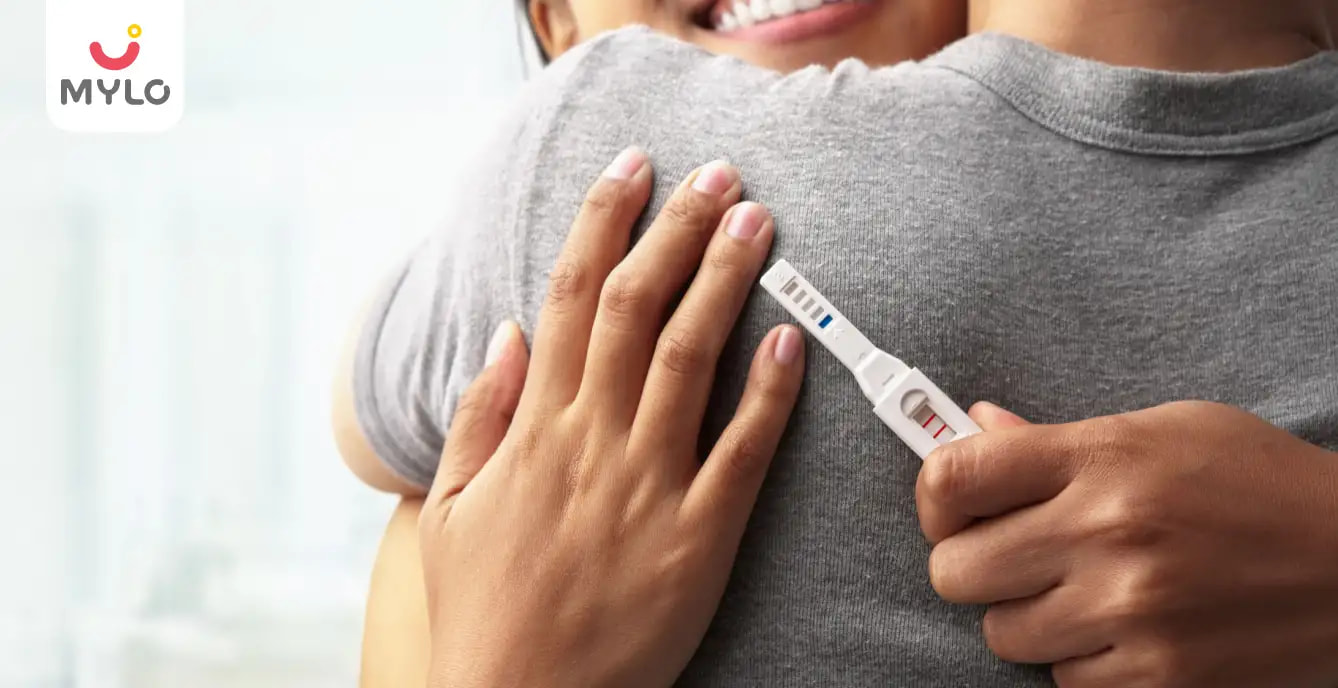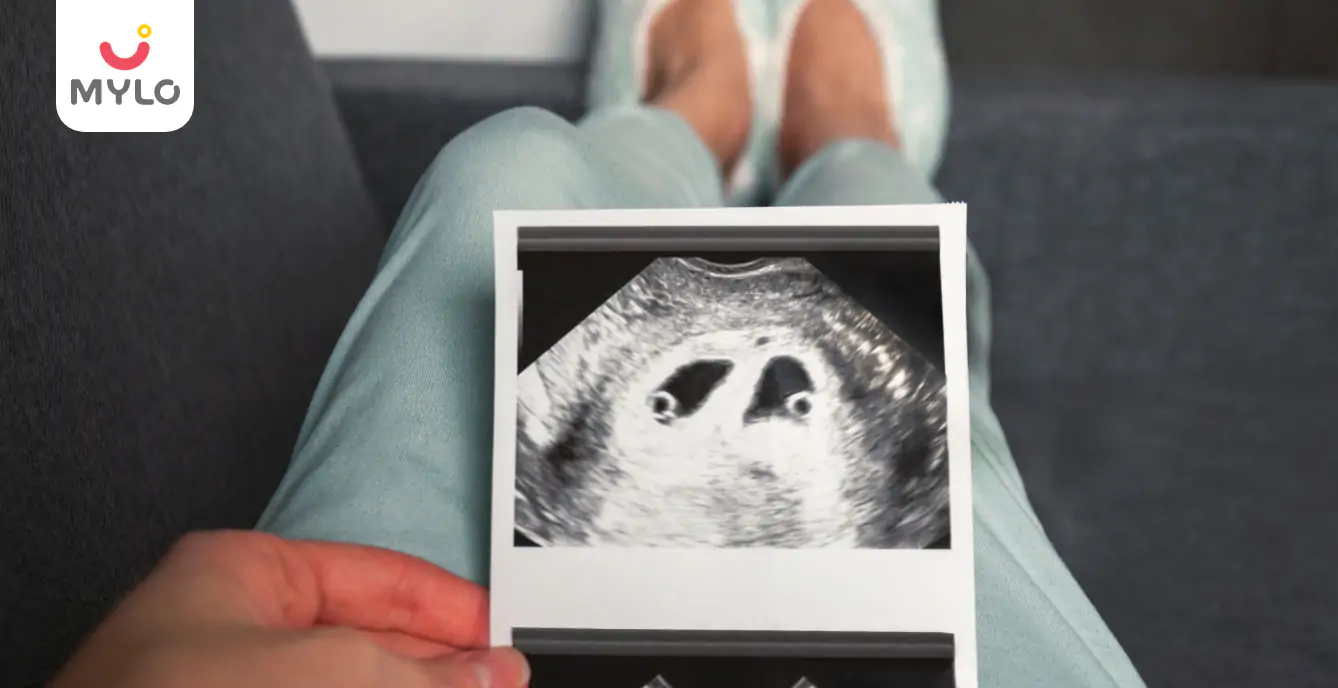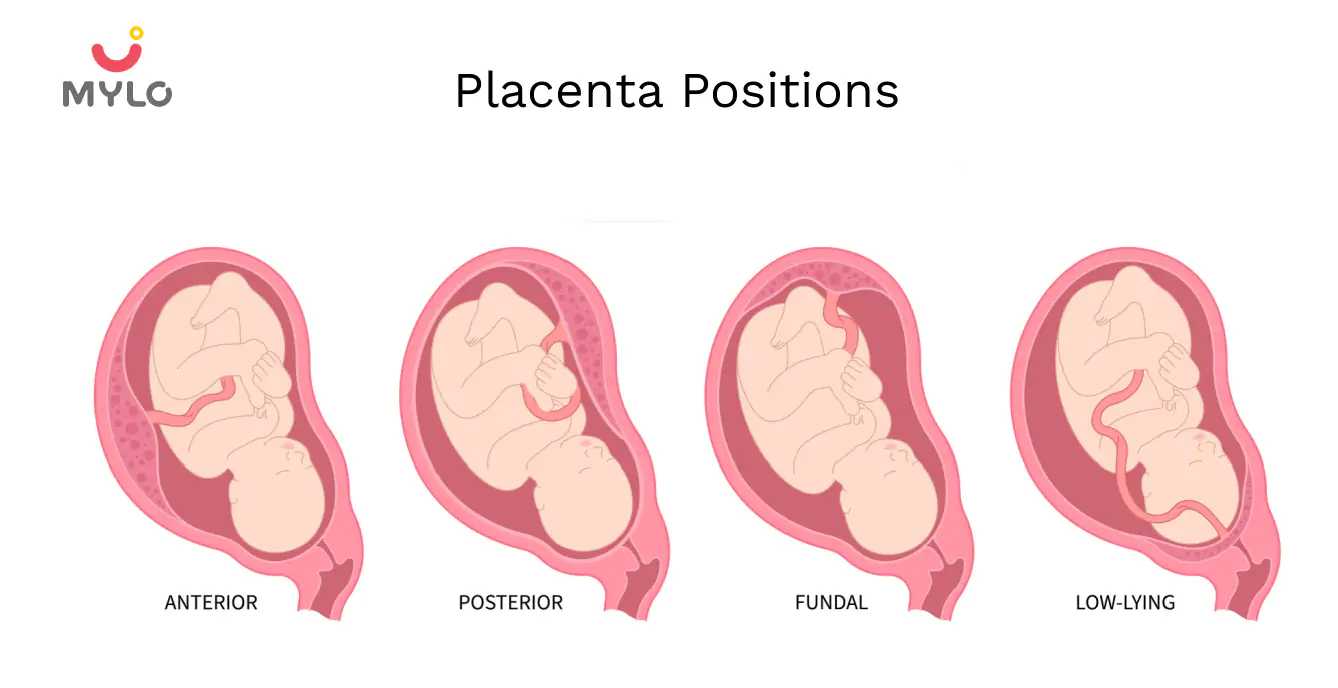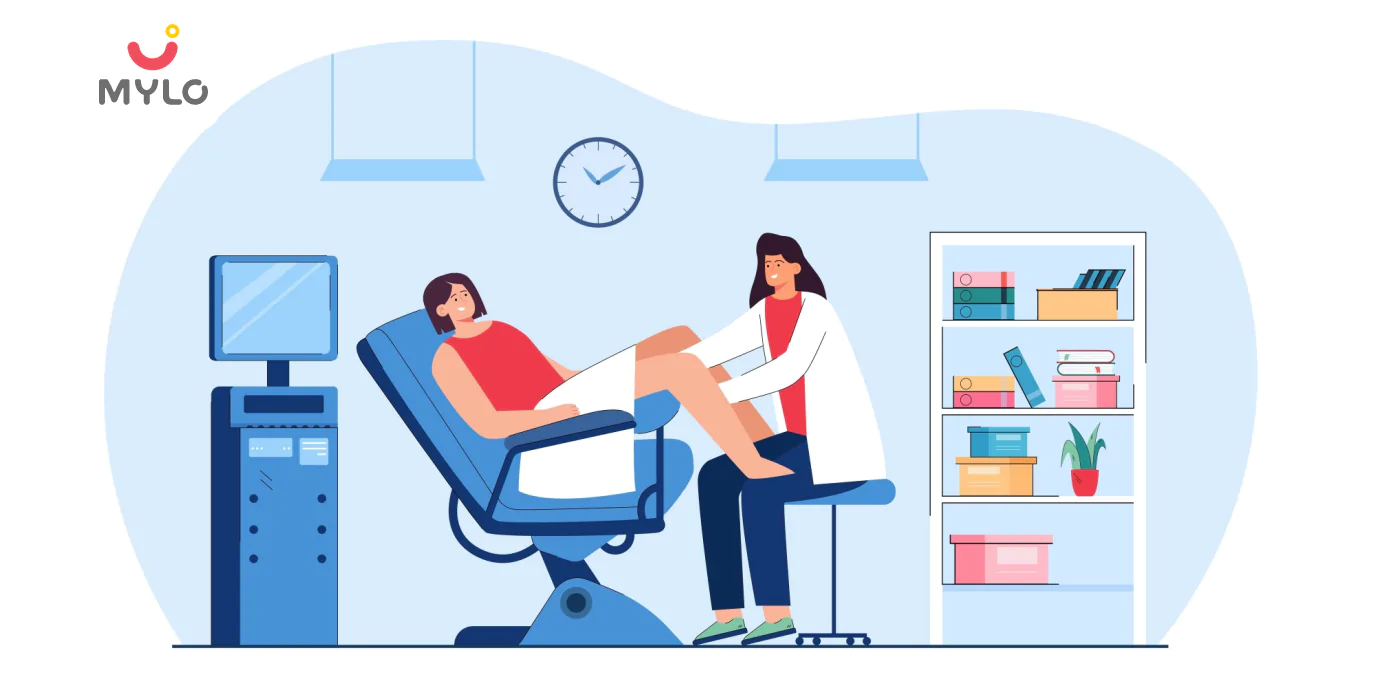Home

Conception

First-Time Sex & Pregnancy Chances: What You Need to Know
In this Article

Conception
First-Time Sex & Pregnancy Chances: What You Need to Know
Updated on 10 October 2023



Medically Reviewed by
Dr. Shruti Tanwar
C-section & gynae problems - MBBS| MS (OBS & Gynae)
View Profile

Many couples eagerly begin their journey towards parenthood with high hopes of conceiving quickly. However, the chances of getting pregnant vary from couple to couple. When it comes to first time sex & pregnancy chances, many factors come into play.
In this article, we will understand the chances of getting pregnant after one time unprotected sex and some ways to improve your chances of conception.
What are the chances of getting pregnant first time trying?
The chances of getting pregnant the first time trying can vary depending on various factors. First and foremost, the age of the woman plays a crucial role. Women in their early twenties have a higher chance of getting pregnant compared to those in their thirties or forties.
Additionally, the regularity of the menstrual cycle and the timing of intercourse during ovulation greatly influence the likelihood of pregnancy. A healthy sperm count and motility, as well as a fertile cervical mucus environment, also contribute to the chances of conceiving.
It is essential to note that even under optimal conditions, the chances of getting pregnant on the first attempt are not guaranteed. Some couples may conceive immediately, while others may take several months or even longer.
Also Read : Sperm Motility and Male Fertility: What You Need to Know
What are the chances of getting pregnant after one time unprotected sex?
Unprotected sex, even if it occurs only once, carries the risk of pregnancy. The chances of getting pregnant after one-time unprotected sex largely depend on various factors, including the timing of the woman's menstrual cycle and the presence of fertile cervical mucus.
If the woman is in the fertile window of her menstrual cycle, which usually occurs around 12 to 16 days before her next period, the chances of pregnancy are higher. During this time, the ovaries release an egg, which can be fertilized by sperm if intercourse takes place.
However, it is important to note that sperm can survive inside the female reproductive system for several days, increasing the likelihood of pregnancy even if intercourse occurs a few days before ovulation.
While the chances of getting pregnant after one-time unprotected sex are not as high as during the fertile window, it is still a possibility. Therefore, it is crucial to use contraception consistently and effectively if pregnancy is not desired.
However, if you wish to conceive a baby, then engaging in sexual intercourse in the days following and during your fertile window can help optimise your chances of getting pregnant first time trying.
You may also like : How Many Times Should You Have Sex to Get Pregnant?
Important facts about first time sex & pregnancy chances
Here are some important facts you must know about the chances of getting pregnant the first time you have sexual intercourse:
1. Age plays a significant role
Women in their early twenties have a higher chance of getting pregnant compared to those in their thirties or forties. As a woman ages, the quantity and quality of her eggs decrease, making conception more challenging.
Also Read : Improve Egg Quality in 30 Days: The Ultimate Guide to Boosting Your Fertility Naturally
2. Timing is crucial
The chances of getting pregnant increase when intercourse occurs during the woman's fertile window, typically around 12 to 16 days before her next period. This is when ovulation takes place, and the egg is released for fertilization.
3. Sperm survival
Sperm can survive inside the female reproductive system for up to five days. Therefore, even if intercourse happens a few days before ovulation, there is still a possibility of pregnancy.
4. Health factors matter
Certain health factors, such as obesity, smoking, and certain medical conditions, can affect fertility and decrease the chances of getting pregnant. Maintaining a healthy lifestyle and addressing any underlying health issues can improve the chances of conception.
5. Patience is key
Even under optimal conditions, getting pregnant on the first attempt is not guaranteed. It is essential to approach the journey towards parenthood with patience, understanding that it may take time and multiple attempts before successful conception occurs.
How to improve your chances of pregnancy?
If you wish to improve your chances of getting pregnant after one time unprotected sex, then here are some tips to help you conceive faster:
1. Understand your menstrual cycle
Tracking your menstrual cycle can help identify the fertile window when ovulation occurs. Various methods, such as using ovulation predictor kits or monitoring basal body temperature, can assist in determining the best time to conceive.
2. Maintain a healthy lifestyle
A healthy diet, regular exercise, and managing stress levels can positively impact fertility. It is essential to maintain a healthy weight, as both underweight and overweight conditions can affect reproductive health.
3. Quit smoking and limit alcohol intake
Smoking and excessive alcohol consumption can decrease fertility in both men and women. Quitting smoking and reducing alcohol intake can significantly improve the chances of getting pregnant.
4. Seek medical advice if needed
If several months pass without successful conception, it may be beneficial to consult a healthcare professional. They can evaluate both partners' reproductive health, identify any underlying issues, and provide guidance on improving fertility.
5. Maintain a positive mindset
Trying to conceive can be emotionally challenging, especially if it takes longer than anticipated. It is important to communicate openly with your partner, seek support from loved ones, and remain positive throughout the process.
Final thoughts
First time sex & pregnancy chances vary from couple to couple. Factors such as age, timing of intercourse, and overall reproductive health play crucial roles in determining the likelihood of conception. Understanding your menstrual cycle, maintaining a healthy lifestyle, and seeking medical advice when necessary can improve your chances of pregnancy. Remember, patience and a positive mindset are key during this beautiful journey towards parenthood.
References
1. Wilcox AJ, Weinberg CR, Baird DD. (1995). Timing of sexual intercourse in relation to ovulation. Effects on the probability of conception, survival of the pregnancy, and sex of the baby. N Engl J Med.
2. Smits LJ, de Bie RA, Essed GG, van den Brandt PA. (2005). Time to pregnancy and sex of offspring: cohort study. BMJ.





Medically Reviewed by
Dr. Shruti Tanwar
C-section & gynae problems - MBBS| MS (OBS & Gynae)
View Profile


Written by
Anandita Sharma
Drawing on more than a decade of expertise in administration, Anandita Sharma currently serves as a content operations e
Read MoreGet baby's diet chart, and growth tips

Related Articles
Related Questions
Influenza and boostrix injection kisiko laga hai kya 8 month pregnancy me and q lagta hai ye plz reply me

Hai.... My last period was in feb 24. I tested in 40 th day morning 3:30 .. That is faint line .. I conculed mylo thz app also.... And I asked tha dr wait for 3 to 5 days ... Im also waiting ... Then I test today 4:15 test is sooooo faint ... And I feel in ma body no pregnancy symptoms. What can I do .

Baby kicks KB Marta hai Plz tell mi

PCOD kya hota hai

How to detect pcos

RECENTLY PUBLISHED ARTICLES
our most recent articles

Twins & Triplets
The Ultimate Guide to Twin Pregnancy Symptoms at 4 Weeks

Sex Life
A Comprehensive Guide to Understanding the Effects of Masturbation

Pregnancy Journey
Placenta Position: How It Affects Your Pregnancy and Delivery

Medical Procedures
Clitoral Hood: Benefits, Risks & More

Pelvic Exam: Details, Outcomes & Dos & Don'ts
My Life Mantra
My life mantar is - HARE KRISHNA HARE KRISHNA KRISHNA KRISHNA HARE HARE HARE RANA HARE RAMA RAMA RAMA HARE HARE which means no matter what is going in your lifejust keep this mwntra in your mind every minute every sec everything will be good automatically. U will not need any other mantra
- Early Pregnancy & Egg White Discharge: What You Need to Know
- Dilation and Curettage (D&C): Procedure, Risks & Benefits
- Alivher Tablet Uses: How to Maximize the Benefits for Your Reproductive Health
- Incompetent cervix: Causes, Symptoms, & Treatment
- Soda During Pregnancy: Is It Safe or Should You Avoid It?
- Watery Discharge Before Period: Is It Normal or a Cause for Concern
- Sperm Cramps: Debunking Myths and Shedding Light on the Facts
- Bitter Gourd During Pregnancy: Benefits and Precautions You Should Know
- First Period After Failed IVF Cycle: What to Expect and How to Cope
- Freezing Eggs: The Pros and Cons of Preserving Your Fertility
- Can a Diabetic Woman Get Pregnant: Exploring the Facts and Myths
- Bulky Uterus with Fibroids: Understanding Causes, Symptoms, and Treatment Options
- Tubal Recanalization: How This Procedure Can Help Restore Your Fertility
- Are FSH (Urofollitropin) Injections an Effective and Safe Fertility Treatment For You?


AWARDS AND RECOGNITION

Mylo wins Forbes D2C Disruptor award

Mylo wins The Economic Times Promising Brands 2022
AS SEEN IN

- Mylo Care: Effective and science-backed personal care and wellness solutions for a joyful you.
- Mylo Baby: Science-backed, gentle and effective personal care & hygiene range for your little one.
- Mylo Community: Trusted and empathetic community of 10mn+ parents and experts.
Product Categories
baby carrier | baby soap | baby wipes | stretch marks cream | baby cream | baby shampoo | baby massage oil | baby hair oil | stretch marks oil | baby body wash | baby powder | baby lotion | diaper rash cream | newborn diapers | teether | baby kajal | baby diapers | cloth diapers | laundry detergent 6472 | lactomama lactation granules |




